Varicocele – Symptoms, Causes, Home Remedies
By Dr. Bikram K Mohanty +2 more

Get,

to manage your symptom
Get your,


4 Cr+ families
benefitted

OTP sent to 9988776655



You’ve successfully subscribed to receive
doctor-approved tips on
Whatsapp

Get ready to feel your best.

Hi There,
Download the PharmEasy App now!!


Register to Avail the Offer
Send OTPBy continuing, you agree with our Privacy Policy and Terms and Conditions

Hi There,
Sign up on PharmEasy now!!
Trusted by 4 crore+ families

OTP sent to 9988776655



You have unlocked 25% off on medicines




Code: NU25

Comments


Leave your comment here
By Dr. Bikram K Mohanty +2 more
Table of Contents
Varicocele is a condition that affects about 10%-20% of adult men with higher frequency in younger individuals1. It is a condition affecting the scrotum, which is a protective sac covering the testicles (part of male reproductive system). Sometimes, the veins in the scrotum get enlarged and twisted (just like varicose veins in the legs) causing varicocele.
Varicocele may not have any symptoms in many cases. However, some men may experience certain effects such as infertility and scrotum deformation due to persistent and untreated varicocele. Only a trained medical professional will be able to diagnose and treat varicocele. Therefore, if you suspect having a varicocele, it’s important to speak with your doctor immediately. Along with medical therapy, there are home-care measures also that can be followed to ease your discomfort and decrease the risk of varicocele getting worse. Scroll on to learn more about these options.

Varicocele has a simple root cause, just like varicose veins. The oxygen-rich blood gets pumped to all parts of the body through the arteries. After reaching all parts of the body, the oxygen is depleted, and this blood needs to return to the heart through your veins. The veins have one-way valves in them so that blood can only move back towards the heart. However, due to age, damage, or other medical conditions these valves may become weak or stop working correctly. This leads to blood flowing back into the veins instead of getting pushed towards the heart. The excess blood collecting within these blood vessels of the scrotum leads to the veins becoming larger and twisted. In many men, a varicocele may not show any symptoms of enlarged veins but in severe cases, it can be seen visibly2.
Varicocele is usually categorized according to how severe the condition is3:
Varicocele might be a cause for low sperm count, and poor motility, and may lead to an increase in the percentage of abnormal sperm, obtain an ultrasound to get an early diagnosis.
Dr Ashish Bajaj, M.B.B.S, M.D. in Clinical Pharmacology and Toxicology
A lot of men may not even be aware that they have varicocele since it often does not have any noticeable symptoms or effects on their health. Many men only discover varicocele when their doctors are trying to find the cause of infertility or during routine physical examinations. In severe cases, it can have symptoms and will require medical attention. These signs may include2,4:
The most common complication of varicocele is infertility (inability to have a child after 1 year of trying). Also, testosterone levels and sperm quality and quantity may be seen on testing in some cases2. But note that not all men with varicocele will experience infertility. You may or may not have these depending on your condition.
There are no effective medical treatments. If a varicocele is causing pain or discomfort, the use of analgesics and scrotal support can be used initially. When a varicocele is treated surgically, it is usually an outpatient procedure.
Dr. M.G. Kartheeka, MBBS, MD(Pediatrics)
It is important to consult a doctor for the diagnosis and treatment of varicocele. You may also discuss with your healthcare provider about trying these home remedies

Since varicocele is linked to blood circulation, any mild exercise that can improve blood flow will be beneficial for this condition. Regular walks, jogging, and swimming are great for strengthening your leg muscles and supporting your blood vessels. However, certain forms of exercise such as cycling, jumping, squats, and weight lifting may worsen your condition and put a strain on the blood vessels in the scrotum. These exercises should be limited or avoided.
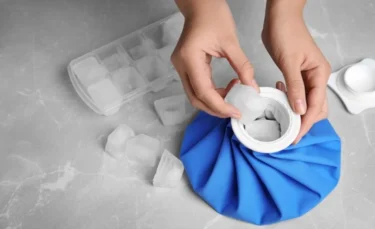
A cold compress or ice pack can be applied to the scrotum region to ease swelling, pain and discomfort, especially after a tiring workout. Do not apply ice directly to the skin, always wrap it in a cloth.
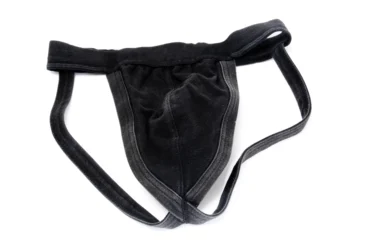
A jockstrap is a type of male underwear that provides extra support to the scrotum. It is often used when playing a variety of sports. You can also use a jockstrap during your regular routine to provide additional support if your job requires you to stand for long periods5.
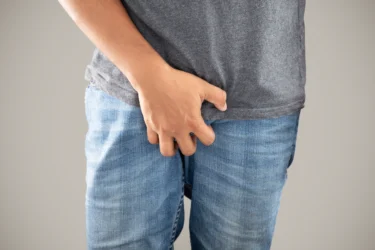
Tight underwear can put unnecessary strain on your scrotum and increase the pressure on your veins. This may worsen your varicocele.
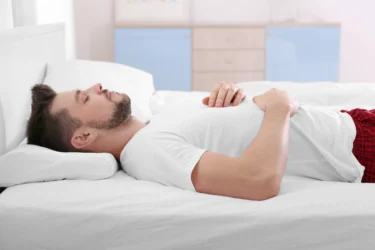
Laying flat on your back can ease the pressure on the veins in your legs and scrotum. This may bring temporary relief from symptoms of pain and discomfort. If possible, try to keep your legs slightly raised when you lay.

A fibre-rich diet will ensure that your food is digested smoothly and that you do not need to strain when passing stools. If you strain too much during bowel movements, you end up adding to the pressure in your scrotum region. Any healthy food that supports smoother movements should be added to your diet, such as leafy greens, fruits, and whole grains6.

Antioxidants are important for fighting free radicals and dealing with damage to your cells caused by oxidative stress. Consuming vitamins with antioxidant properties -in diet or as supplements may lead to better overall health which can be helpful when you have a varicocele as well. However, always consult a doctor before taking supplements7.

Oily, fatty, sugary foods and beverages can interfere with smooth digestion and cause constipation. These items may also increase your blood pressure, which could make your varicocele worse6.
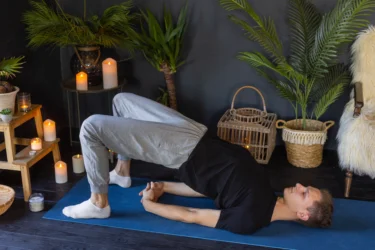
Kegel exercises involve the pelvic floor muscles, where you contract and relax these muscles regularly. Kegel exercises have benefits for incontinence and other issues and may support better blood flow in the scrotum.
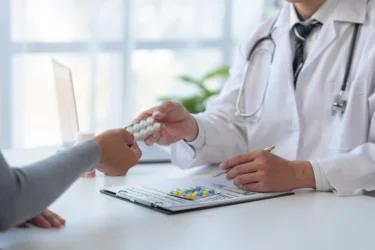
Sometimes the pain may be too much to bear, for these cases, you should speak with your doctor regarding the best painkiller medication for you.
While these supportive measures may help deal with varicocele symptoms and avoid its progression, more research is needed to prove the actual benefits of these in varicocele. Therefore, these must always be considered after medical advice. You doctor can guide you best what is more suitable to you based on your needs and general health conditions.
If you suspect that you have symptoms and signs of varicocele, get examined by a physician since untreated varicocele may cause testicular failure, lower hormonal production and shrinking of the testes.
Dr Ashish Bajaj, M.B.B.S, M.D. in Clinical Pharmacology and Toxicology
Also Read: Best and Worst Foods for Erectile Dysfunction
Varicocele will require medical attention whenever you notice symptoms, whether mild or severe. You may need to change your routine (such as less strenuous exercises) or even undergo surgery if your condition is acute. Here are some signs that you need to consult a doctor immediately:
Depending on your condition, your doctor will recommend the appropriate treatments or surgery. Surgeries may include laser, laparoscopic, or open techniques to remove or tie up the affected vein8.
Also Read: Simple Home Remedies to Help Ease PCOS Symptoms
Varicocele is not something that you need to worry about, even if your varicocele is at one of the more severe grades. There are several techniques and medical options to manage this condition effectively. In many cases, your doctor may only recommend waiting and observing the varicocele rather than opting for surgery, especially if it does not have any symptoms. Speak with your doctor if you suspect a varicocele for a proper diagnosis and the right treatment plan for you.
Also Read: Home Remedies That Ease Your Hydrocele
Pain or a sensation of heaviness in the scrotum, a mass on the scrotum, enlarged scrotal veins, and infertility are some of the symptoms of varicocele, although in some cases, the condition may be symptomless.
Varicocele is caused when the veins present in the scrotum region become weak or damaged. These damaged veins are not able to properly send blood back to your heart, leading to excess blood collecting in the veins.
Generally, varicocele is only permanently fixed through surgical intervention. You may be able to decrease your symptoms by avoiding certain exercises. Therefore, do not delay in consulting a doctor for this problem.
Any healthy foods that are high in fibre can be good for people with varicocele. Poor fibre diets may result in extra strain and pressure when having a bowel movement, which can worsen your varicocele. Fibre-rich diets ensure smoother digestion and bowel movements.
Disclaimer: The information provided here is for educational/awareness purposes only and is not intended to be a substitute for medical treatment by a healthcare professional and should not be relied upon to diagnose or treat any medical condition. The reader should consult a registered medical practitioner to determine the appropriateness of the information before consuming any medication. PharmEasy does not provide any guarantee or warranty (express or implied) regarding the accuracy, adequacy, completeness, legality, reliability or usefulness of the information; and disclaims any liability arising thereof.
Comments

Leave your comment...

View all comments(1)
You may also like
Where are your sources? I’d Just like to know them?!!! But great info this helped tremendously!!!!!!!!!!!!